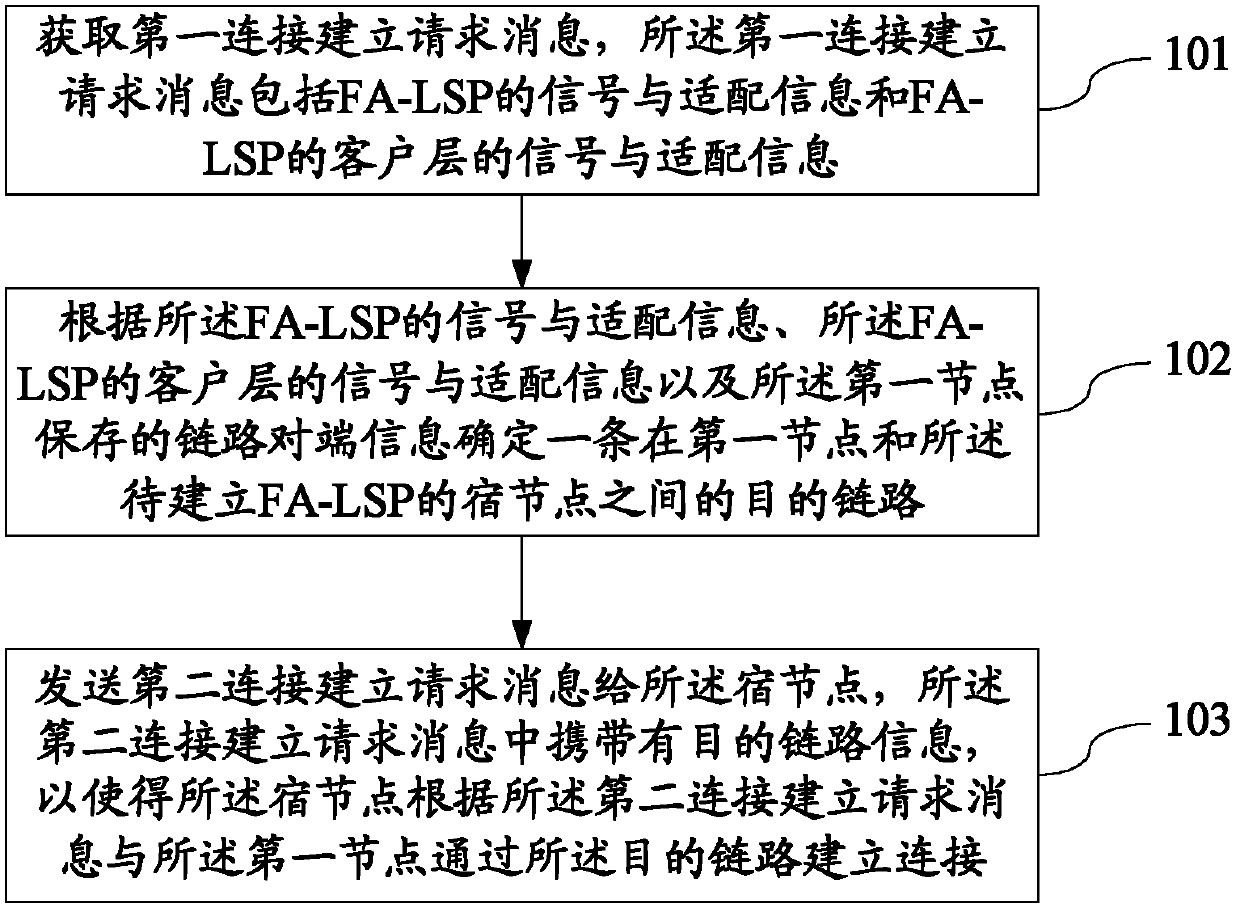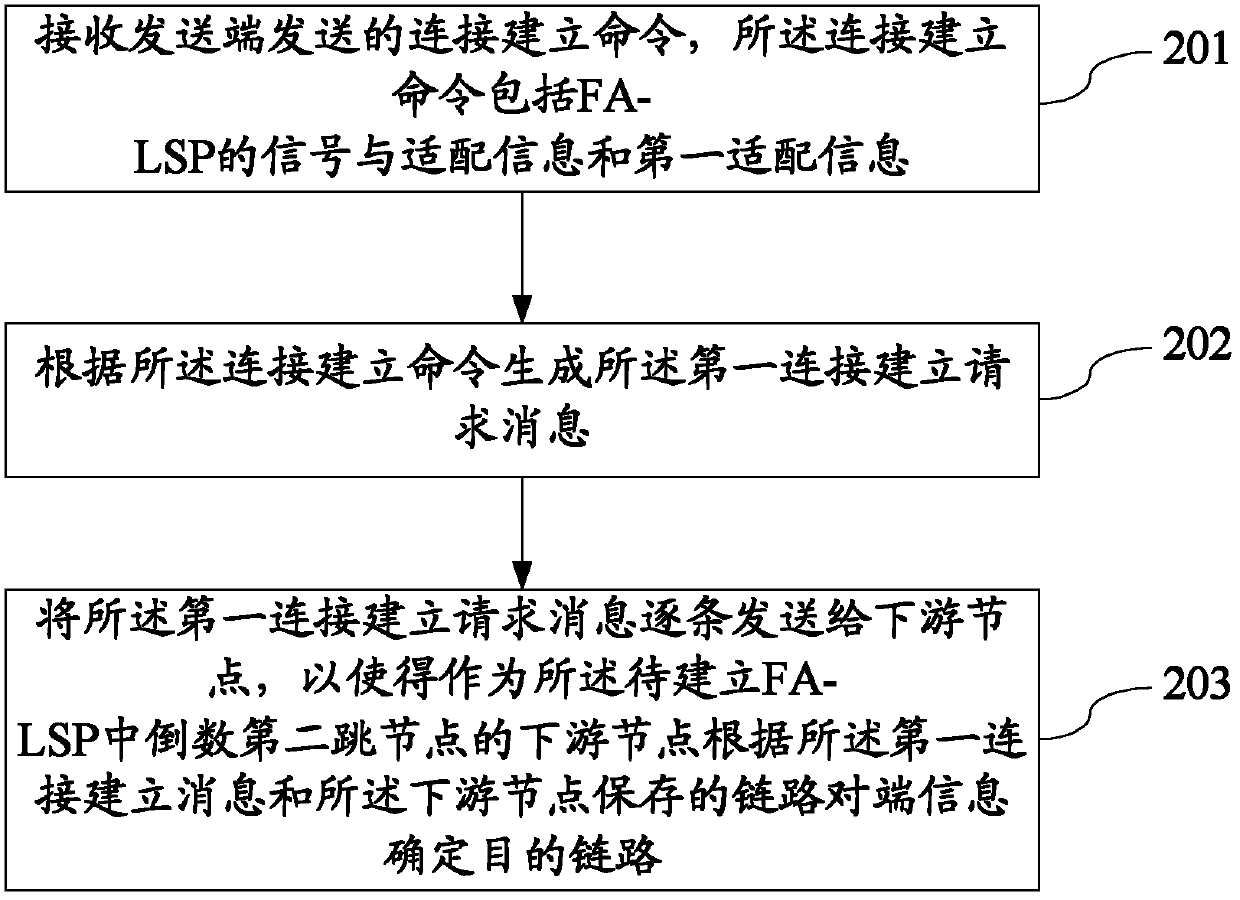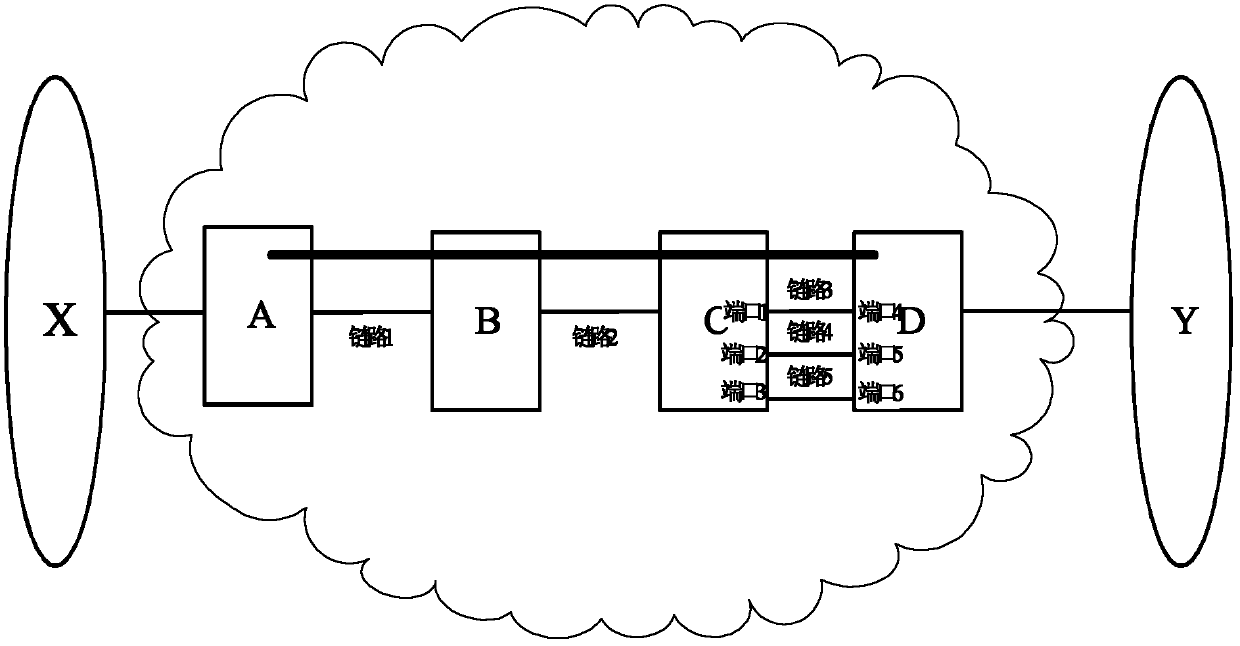Connection building method and device for transponding neighbour-lable switching path
A technology for label switching path and connection establishment, which is applied in the field of connection establishment of forwarding neighbor-label switching path, and can solve the problem of not guaranteeing FA-LSP client signals.
- Summary
- Abstract
- Description
- Claims
- Application Information
AI Technical Summary
Problems solved by technology
Method used
Image
Examples
Embodiment 1
[0037] As shown in FIG. 1(a), a method for establishing a FA-LSP connection provided by an embodiment of the present invention is applied to the first node as the penultimate hop node in the FA-LSP to be established. The method includes:
[0038] 101. Acquire a first connection establishment request message, where the first connection establishment request message includes FA-LSP signal and adaptation information and FA-LSP client layer signal and adaptation information.
[0039] Wherein, the signal and adaptation information of the FA-LSP may include the signal type of the FA-LSP to be established and the adaptation mode of the FA-LSP, or may only include the signal type of the FA-LSP to be established, and the FA-LSP The client layer signal and adaptation information of the FA-LSP to be established may include the adaptation relationship of the client signal to be supported by the FA-LSP to be established and the adaptation mode to be supported by the FA-LSP to be established...
Embodiment 2
[0062] In order for those skilled in the art to better understand the technical solution provided by the embodiment of the present invention, the method for establishing an FA-LSP connection provided by Embodiment 2 of the present invention is now described in detail.
[0063]Please refer to FIG. 2(a). FIG. 2(a) is a network system architecture provided by an embodiment of the present invention. The network system architecture includes a multi-layer network. As can be seen from FIG. 2(a), in a multi-layer network, Nodes A, B, C and D are located in the service layer network, nodes X and Y are located in the client layer network, node X is connected to node A, node Y is connected to node D, node A is connected to node B through link 1, node B is connected to Node C is connected through link 2, and node C and node D are connected through links 3, 4 and 5. The thick line in Fig. 2 (a) represents a connection through nodes A, B, C and D in the service layer network, i.e. FA-LSP, i...
Embodiment 3
[0106] The method described in the second embodiment above can be applied in an optical transport network (Optical Transport Network, hereinafter referred to as OTN). In the OTN, the client signal type generally includes: ODU0 (Optical channel Data Unit, optical channel data unit), ODU1, ODU2, ODU2e, ODU3 and ODUflex, the adaptation method of client signals is usually called "multiplexing" or "mapping". Among them, for example, "multiplexing" usually means adapting ODUj to ODUk (j<k); "mapping" usually means adapting ODUk to OTUk (Optical channel Transport Unit, Optical Channel Transport Unit) . The adaptation mode includes at least one of the following information: a time slot granularity type (Tributary Slot Granularity, hereinafter referred to as TSG), and a payload type (Payload Type, hereinafter referred to as PT). Optionally, the adaptation manner may also include a framing procedure. In the case of determining the client signal type and the TSG in the adaptation metho...
PUM
 Login to View More
Login to View More Abstract
Description
Claims
Application Information
 Login to View More
Login to View More - R&D
- Intellectual Property
- Life Sciences
- Materials
- Tech Scout
- Unparalleled Data Quality
- Higher Quality Content
- 60% Fewer Hallucinations
Browse by: Latest US Patents, China's latest patents, Technical Efficacy Thesaurus, Application Domain, Technology Topic, Popular Technical Reports.
© 2025 PatSnap. All rights reserved.Legal|Privacy policy|Modern Slavery Act Transparency Statement|Sitemap|About US| Contact US: help@patsnap.com



